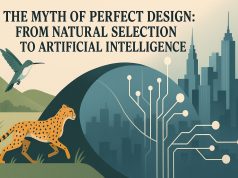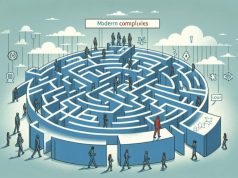As the skyline of New York ebbs and flows with the tide of progress, so too do the lives of its inhabitants, particularly the aging workforce who have been the backbone of the city’s relentless drive. At The Work Times, we recognize the changing contours of retirement and the necessity of reevaluating its meaning in the context of extended life expectancy, a desire for enduring purpose, and the evolving economic landscape.
The very concept of retirement is undergoing a metamorphosis among New York’s aging population. Gone are the days when retirement signaled an abrupt end to one’s professional life, transitioning overnight from full-time employment to a life of leisure. Today’s older New Yorkers are challenging the traditional narrative, seeking a retirement that is neither an end nor a retreat, but a transition—a pivot towards new forms of work and engagement.
In response to this cultural shift, forward-thinking companies in the Big Apple are innovating to retain the expertise of their seasoned workers. Phased retirement plans are emerging, allowing employees to gradually reduce their hours while mentoring the next generation of workers. This model benefits all involved—the company preserves invaluable knowledge and experience, older workers maintain a sense of purpose and continuity, and younger employees receive guidance and wisdom.
Consultancy roles are another avenue through which the value of mature workers is being recognized. With a lifetime of industry-specific knowledge, older professionals are stepping into roles that allow them to impart their expertise on a project basis, offering strategic insights without the commitment to a full-time schedule.
Moreover, mentorship programs are becoming a pivotal narrative in the corporate chronicles of New York. These initiatives not only bridge the generational divide but also ensure that the legacy of skill and experience is not lost. They are a testament to the principle that the worth of older employees far exceeds the mere tally of their years but is measured in the richness of their contributions.
The cultural implications of this shift are profound. A society that redefines retirement as a stage for continued contribution rather than withdrawal, fundamentally alters its own narrative on aging. Older New Yorkers are seen not as a group stepping back but as an integral force moving the city forward.
From an economic standpoint, the advantages are multifold. The delayed full retirement of older workers equates to continued earnings and less immediate strain on pension systems. Moreover, their continued participation in the workforce can be a bulwark against the challenges of an aging population, including labor shortages and the loss of institutional knowledge.
The future of work in an age-diverse society is not without its challenges, but in New York, the city that never sleeps, we see the dawning of an era where work and purpose do not retire—instead, they simply evolve. We are witnessing not just a shifting paradigm of retirement but the redefinition of a life’s work in the later chapters of one’s career.
As we at The Work Times champion this evolution, we invite businesses, policymakers, and older New Yorkers themselves to join the dialogue and the movement. Together, we can redefine what it means to contribute, to engage, and to work, creating a blueprint for a society that values every stage of a person’s professional journey.




























